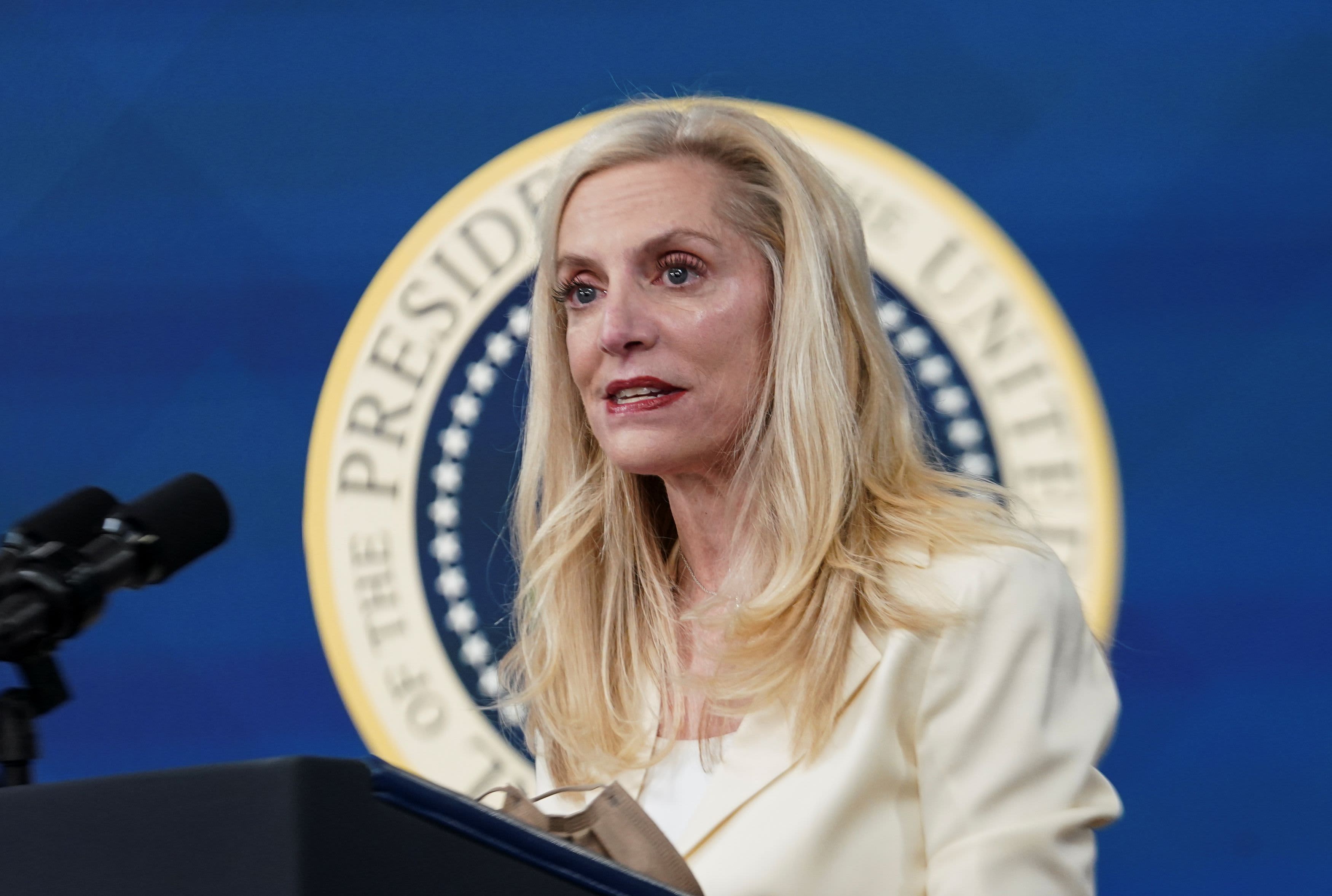
- President Joe Biden's decision to nominate Lael Brainard as Fed vice chair is thought to be in part the work of progressives, who say she'll emphasize climate change and equitability.
- In tapping Brainard, Biden nominates the 59-year-old to help manage the U.S. economy through a jump in inflation and a steady but uneven recovery.
- Brainard has also pressed the case for a digital dollar and is seen as a leading voice on financial innovation such as crypto at the Fed.
Lael Brainard is often the outlier.
In her role as one of seven Federal Reserve governors, she's made a habit of objecting to otherwise-unanimous motions to roll back financial regulations. Until her first objection in 2018, no governor had dissented since 2011.
"As I've said before, we can't just return to where we were before the pandemic," he added. "Together, they also share my deep belief that urgent action is needed to address the economic risks posed by climate change, and stay ahead of emerging risks in our financial system."
A spokesman for the Federal Reserve declined to make Brainard available for an interview.
Biden on Monday announced his intent to nominate the 59-year-old Brainard to serve as Powell's deputy to help manage the U.S. economy through a jump in inflation, a steady but uneven recovery and sluggish labor force participation.
Brainard was thought to be under consideration for the top job in the days leading up to the White House announcement. But Powell, a Republican, earned high marks from leaders in both parties for the Fed's actions in 2020 to flood the economy with cash as businesses across the country closed thanks to Covid-19.
Economists say that near-zero interest rates and the Fed's $120 billion in monthly purchases of Treasury and mortgage securities saved the U.S. economy from an even deeper recession and is a principal reason for the faster-than-expected rebound.
Prior to Monday's announcement, Wall Street speculated Brainard could also be tapped to be the Fed's Vice Chair for Supervision, the central bank official in charge of regulating banks. The White House said Monday that the president would announce its candidate for that job at some point in December.
"While Brainard missed out on the top job this time, her nomination as vice chair for monetary policy rather than vice chair for supervision and regulation as more widely speculated places her at the core of Fed policymaking going forward and positions her as a potential future Fed chair or Treasury secretary," said Krishna Guha, head of central bank strategy at Evercore ISI.
The administration's decision to promote Brainard is thanks in part to progressive lobbying and Democrats such as Sens. Elizabeth Warren of Massachusetts, Sheldon Whitehouse of Rhode Island and Jeff Merkley of Oregon.
Throughout the summer and fall, Warren encouraged Biden to find a Fed chair tougher on banks and to stay away from Powell, whom she called a "dangerous man." Others, including Whitehouse and Merkley, pushed for a candidate who considers climate change a serious threat and would reframe the way banks consider its risks.
Brainard has in recent months delivered speeches on topics including climate change and the race-based economic disparities that the Covid-19 pandemic exacerbated.
She told Harvard undergraduates in February that while the Labor Department's headline unemployment rate is a useful metric, it tends to mask inequalities when taken in isolation. Instead, she said, she considers broad-based and inclusive maximum employment a "critical guidepost for monetary policy."
Some viewed such speeches as a not-so-subtle attempt to distinguish herself from Powell, who had been reluctant to expand the Fed's jurisdiction to topics that could be perceived as partisan.
"Brainard was Biden's obvious choice as Chair were he not to renominate Powell," PNC Chief Economist Gus Faucher said in an email. "Differences between Powell and Brainard on monetary policy have been slight, but Brainard has generally been stricter on the banking industry than Powell. It was something of a surprise move that Brainard was named Vice Chair, and not Vice Chair for Supervision."
Senate Banking Committee Chairman Sherrod Brown, D-Ohio, was quick to applaud Biden's decision to promote Brainard. His committee is expected to recommend both Powell and Brainard to the broader Senate, where lawmakers are expected to confirm both appointments by wide margins.
"Dr. Lael Brainard has spent her life fighting for a stronger, fairer economy – one where workers share in the growth and prosperity they create and where their hard work is not gambled away by reckless Wall Street banks," he said in a release.
Sen. Pat Toomey, the committee's top Republican, praised the president's decision to renominate Powell and said in a release that while he has some concerns about Brainard's tendency to favor more banking regulation, he looks forward to meeting with her to talk them over.













